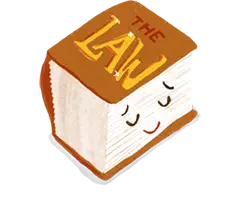Topic
Criminal law
This page contains different parts of laws about Criminal law, within the topic of Crime and justice.

Important laws about Criminal law
Court Martial Act 2007
When section 42 applies to sexual violation court cases
41: Application of section 42
Court Martial Act 2007
Bail time while waiting for an appeal doesn't count as part of your sentence.
51: Time on bail pending appeal does not count as time served
Court Martial Act 2007
What happens to other charges when you're found guilty of one
60: Recording of finding on alternative charges
Court Martial Act 2007
Waiting for a Sentence: Coming Back to Court
62: Order to come up for sentence if called on
Court Martial Act 2007
The Court Martial must give fair sentences that follow the rules.
65: Court Martial must adhere to sentencing guidelines
Court Martial Act 2007
Rules for Evidence in a Court Martial
71: Evidence in proceedings under this Act or 1971 Act
Court Martial Act 2007
What happens to a court-martial that was already set up when this law started?
85: What happens if court-martial has been convened on commencement of this Act
Court Martial Act 2007
Other crimes you can be found guilty of if charged with something similar
Schedule 1: Alternative offences under 1971 Act of which accused may be convicted by Court Martial
Weights and Measures Act 1987
You don't have to show documents that might get you in trouble
29: Privilege against self-incrimination
Weights and Measures Act 1987
Rules about pretending to be inspectors and using fake stamps or marks on weights and measures
32: Offences
Weights and Measures Act 1987
Rules for giving out and handling fines for breaking weight and measure laws
32B: Procedural requirements relating to infringement notices
Weights and Measures Act 1987
What happens if you break the weights and measures rules
33: Penalties
More laws about Criminal law
About this project
What is this project?
This project is an experiment to take difficult language, and make it easier to read and understand for everyone.
How do we do this?
What's our process for taking the law and turning it into plain language?
Why is the law written like it is?
Laws are often hard to read. They use a lot of words and language we don't usually use when we talk.
Should we use AI for this?
What are the good and bad sides of using AI?
Is this information the actual law?
We hope that this information will help people understand New Zealand laws. But we think that it's important you talk to someone who understands the law well if you have questions or are worried about something.
You can talk to Community Law or Citizen's Advice Bureau about your rights.
Remember that AI can make mistakes, and just reading the law isn't enough to understand how it could be used in court.
You can talk to Community Law or Citizen's Advice Bureau about your rights.
Remember that AI can make mistakes, and just reading the law isn't enough to understand how it could be used in court.




